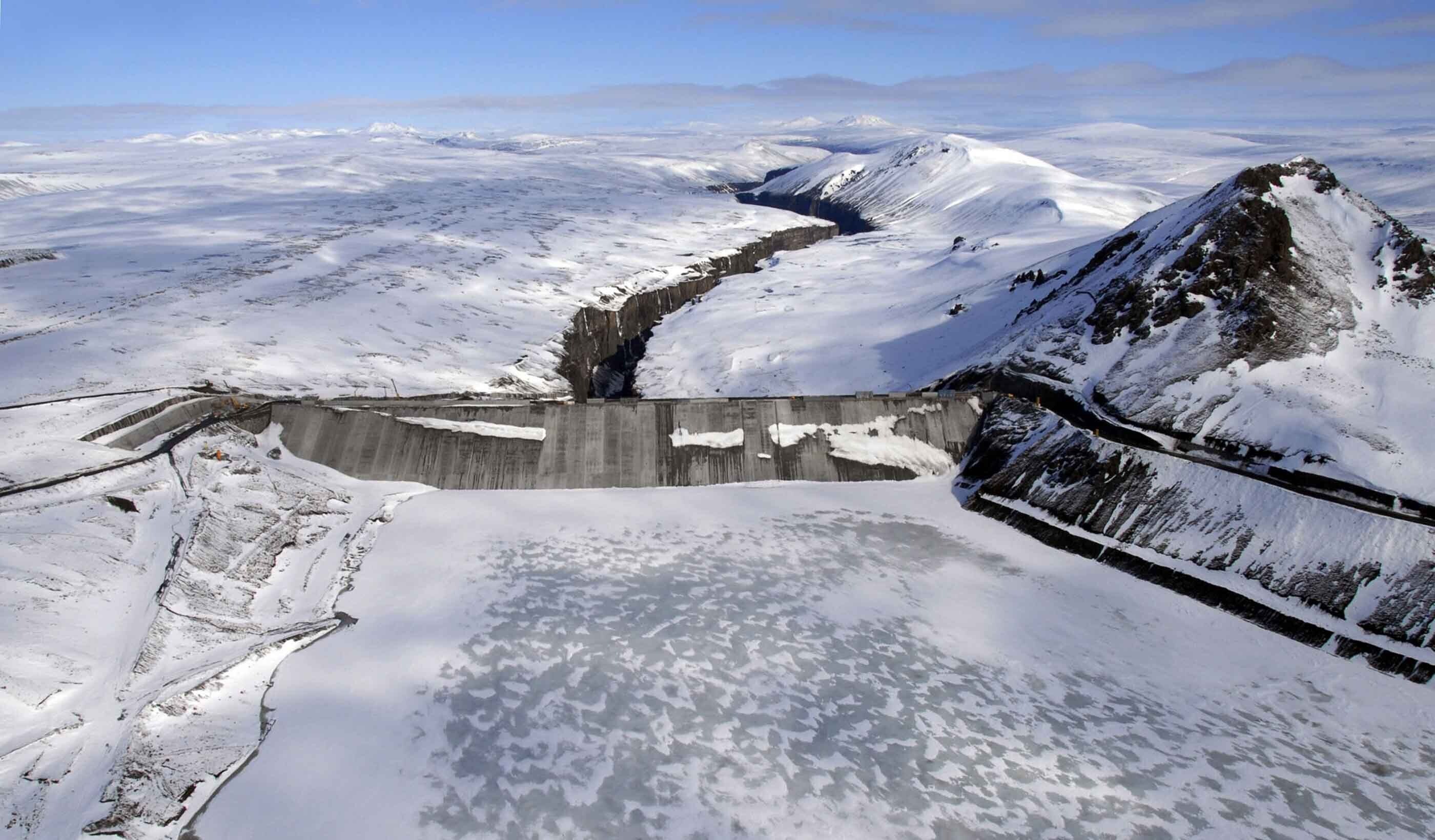Kárahnjúkar hydropower plant: Powering Iceland’s industrial future with clean energy
With the rising demand for hydropower as an alternative to fossil fuels, Iceland undertook the development of the Kárahnjúkar hydropower plant in the eastern Highlands to support the Alcoa aluminium smelter, built simultaneously.
 Image source: Stantec
Image source: Stantec
Iceland's largest industrial development
Together, these projects represent Iceland's largest industrial development to date. With an annual output of 4,600 GWh, this $1.2 billion (€1.1 billion) venture took five years to complete. The construction includes 73 kilometres (45 miles) of tunnels, five dams, and three reservoirs.
The Icelandic government strongly supports hydropower, seeing it as essential to its economic growth strategy, particularly for powering energy-intensive industries. While investors explore new hydropower projects, Kárahnjúkar is expected to hold its position as Iceland's leading hydropower plant for the foreseeable future, producing more electricity than the country's three largest hydro plants combined.
Named after the nearby mountain, Iceland's Kárahnjúkar hydropower plant boasts an installed capacity of 690 MW, making it the largest in the country. To generate power, two rivers—the Jökulsá á Dal and the Jökulsá í Fljótsdal—have been dammed.
In total, five separate dams were constructed, forming three reservoirs. Among these, the largest dam stands as Europe's tallest rock-fill, concrete-faced dam, rising to 193 meters (633 feet) with a length of 730 meters (2,395 feet) and requiring 8.5 million cubic meters (27.9 million cubic feet) of material to complete.
Alcoa Fjarðaál Aluminum Smelter & the Kárahnjúkar hydropower project
Kárahnjúkar's counterpart is the Alcoa Fjarðaál Aluminum Smelter, built specifically to receive its power. The smelter processes imported aluminium oxide (alumina) to produce high-quality aluminium for global export, contributing significantly to Iceland's revenue.
Due to the immense electricity demands of aluminium smelting, plants like Alcoa Fjarðaál are typically located near dedicated power sources. This smelter relies exclusively on Kárahnjúkar for its operations, which include a smelting facility, deep-water port, casting house, and rod production division.
The Alcoa Fjarðaál plant produces an impressive 940 tonnes of aluminium daily—equivalent to around 187 large SUVs. Its annual capacity reaches a remarkable 346,000 metric tonnes. Globally, Iceland ranks as the 10th-largest aluminium producer, with an annual output of 840,000 tons, the majority of which is exported.
This news is also available on our App 'AlCircle News' Android | iOS


























